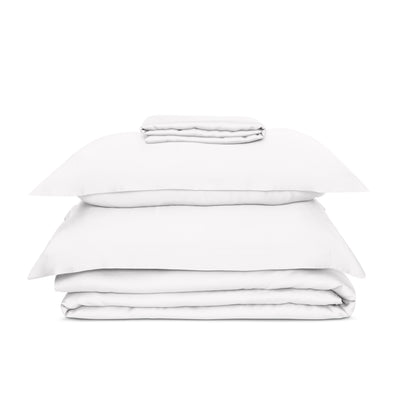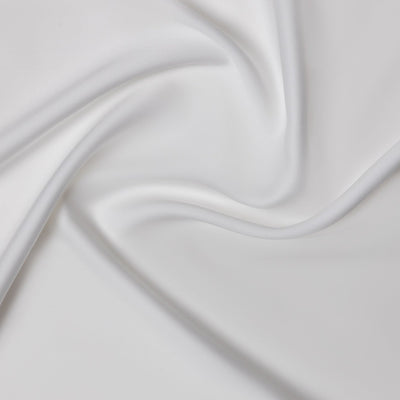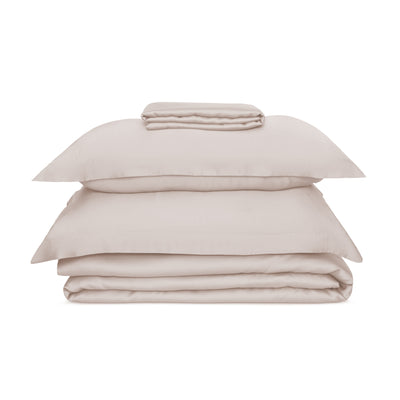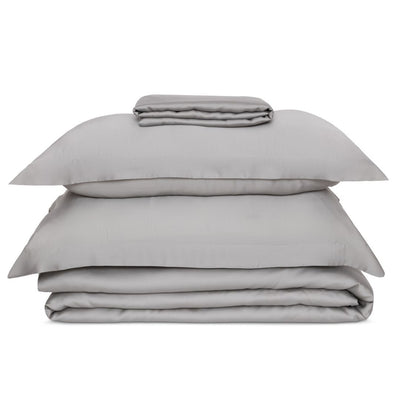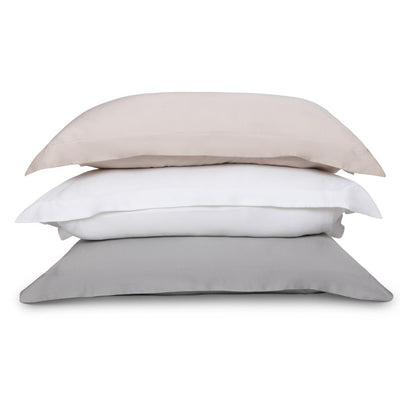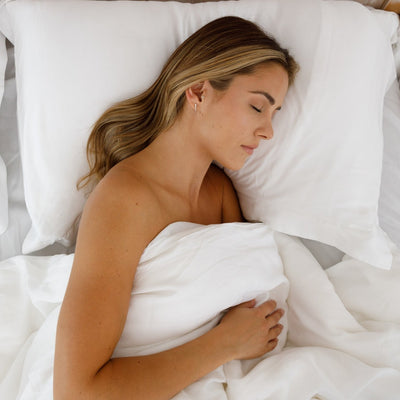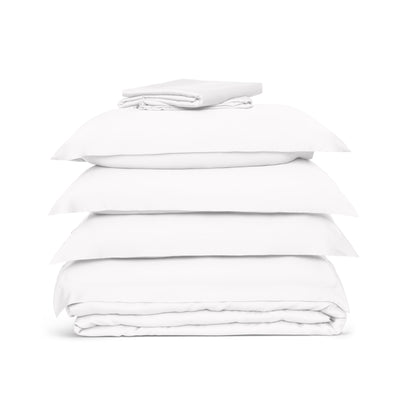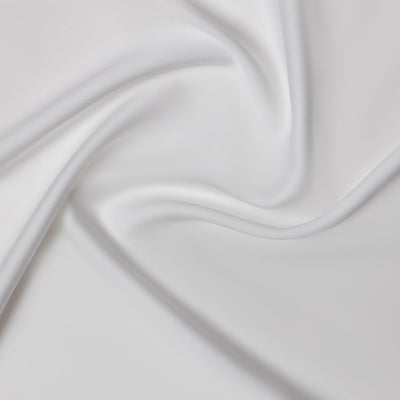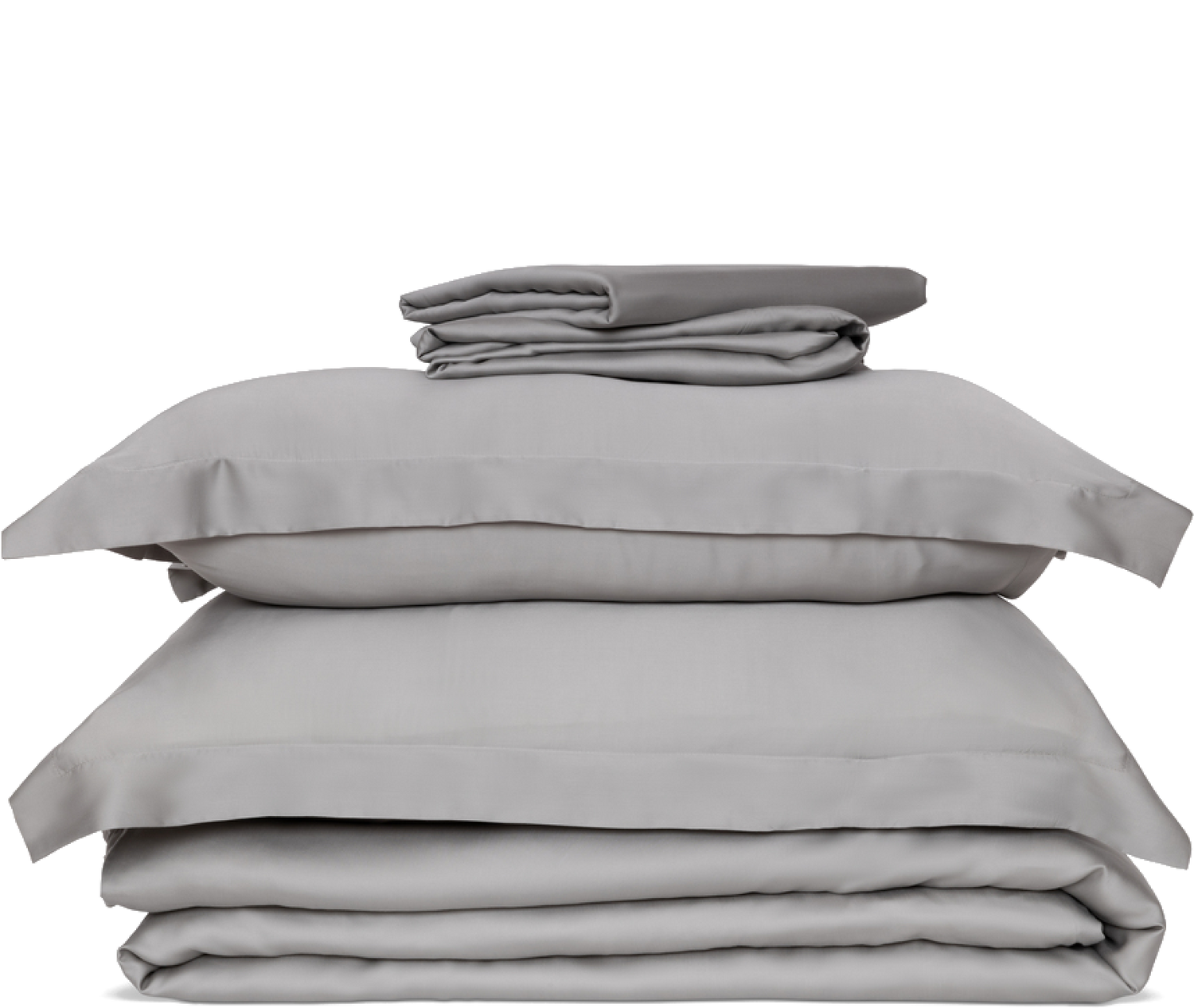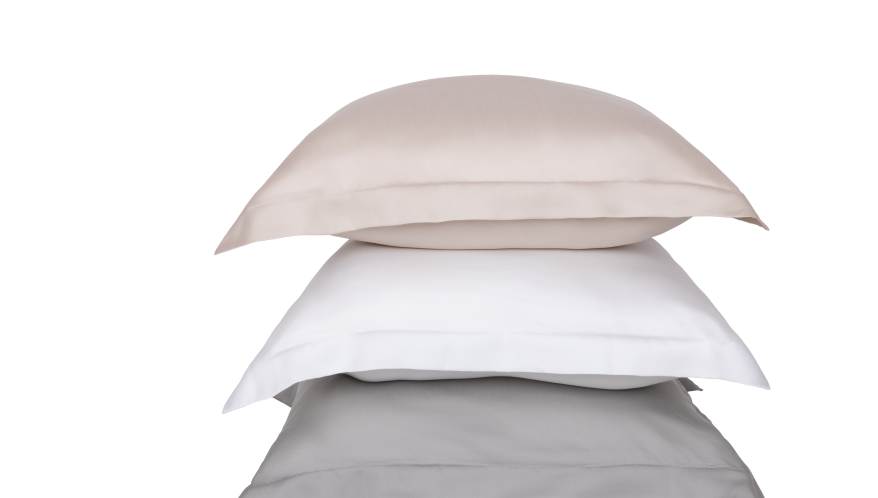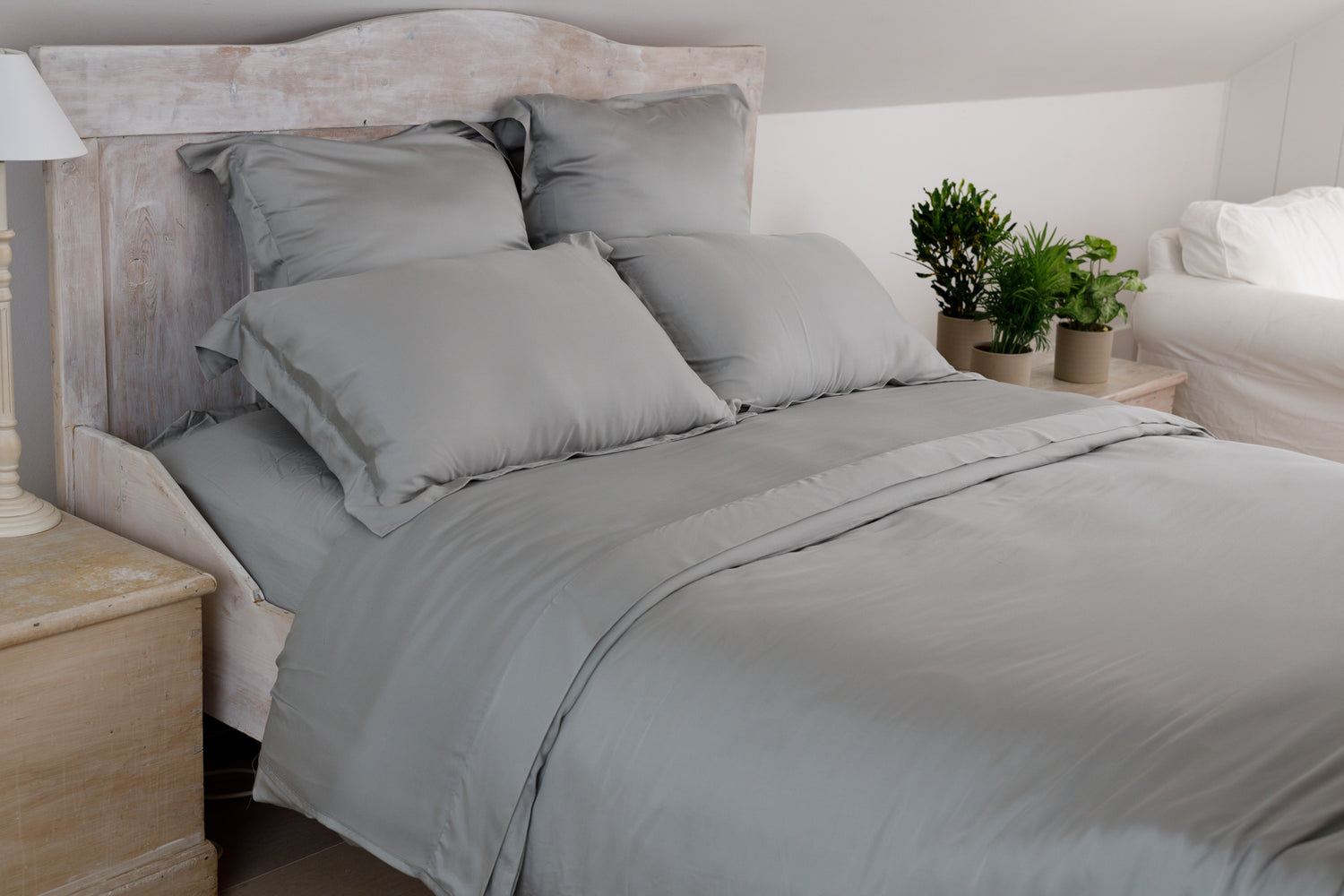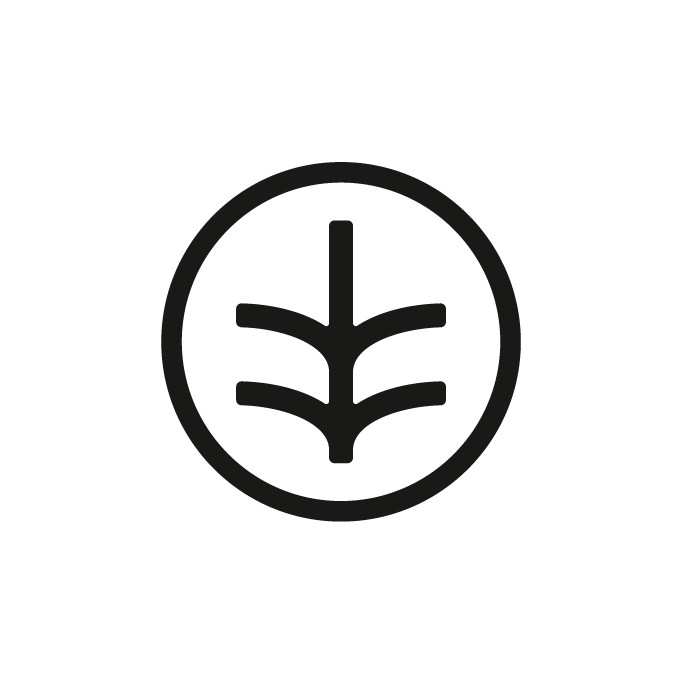Looking to upgrade your bedding but not sure what material to choose? Or maybe stuck between picking premium Tencel and traditional cotton? Well, fortunately to make things a little easier, we’ve delved deep into the facts, to reveal what Tencel and cotton are, as well as how they’re produced, the pros and cons of each, and why you might choose one over the other.
What is Tencel fabric?
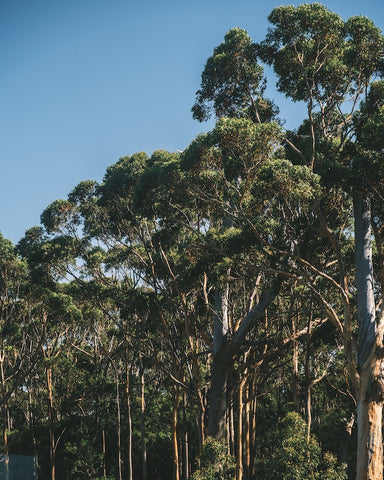
A popular brand of lyocell fibre, Tencel is a soft and silky fabric made from eucalyptus wood, and has been used to create luxury bedding since being developed in 1972.
Comfortable and versatile, Tencel bed sheets are also long-lasting, gentle on the skin, and naturally moisture-wicking whatever the temperature. Interestingly, Tencel material can also be combined with some other textiles to improve overall functionality and comfort.
What is the difference between Tencel and bamboo sheets?
Both Tencel and bamboo make excellent quality bedding and are manufactured through a similar process – the main difference being that Tencel bedding is sourced from eucalyptus while bamboo is (unsurprisingly) sourced from bamboo.
Both materials are hypoallergenic, comfortable, and environmentally-friendly that last, however there are some subtle contrasts: bamboo bedding is often slightly stronger, softer, and more straightforward to care for, while Tencel is typically better at regulating temperature.
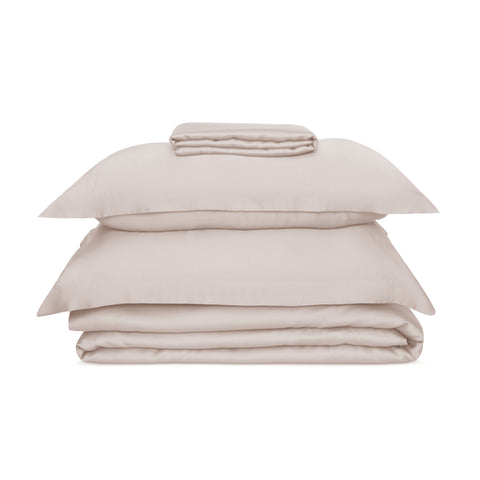
How are Tencel fibres made?
So, what is Tencel fabric made from? Tencel fibres are manufactured by dissolving eucalyptus wood pulp with a chemical solvent, in a closed-loop process (meaning the water and chemicals involved in production aren’t wasted after use, and are instead reused at another stage).
Once the pulp has fully dissolved, it’s squeezed through minute holes to produce long threads, which are then dried out and spun into a yarn. Fabric is then produced using the Tencel threads, with a common thread count of around 300.
Is Tencel natural or synthetic?
Tencel material is interesting because it’s both natural and synthetic. It’s often referred to as semi-synthetic. While the fibres are sourced from eucalyptus wood, they are processed using chemicals to create a silky fabric designed for comfort.
What is cotton?
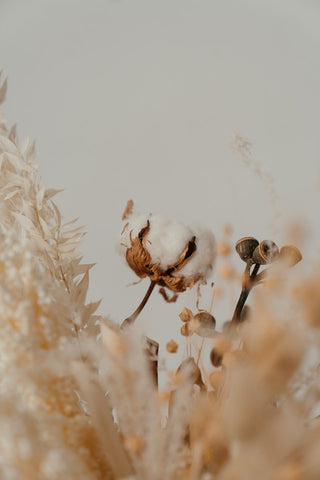
In production for 7,000 years, cotton has long-been a popular material used in the manufacturing of bedding, as well as just about any kind of textile and type of clothing. Soft and durable, cotton is a traditional favourite for a reason, thanks to its natural breathability, moisture-wicking properties, and straightforward washing.
Examples of different types of cotton
While there are numerous varieties of cotton blend used worldwide, three are commonly used to make bed sheets: American Upland, Pima, and Egyptian. We’ve outlined how to identify each.
American upland
American Upland is a traditional cotton that’s commonly used to make bed sheets. In fact, the majority of cotton bedding worldwide is made using these fibres. Soft to touch, American Upland cotton staples range from being very short to mid-length.
Pima
Pima is another popular type of cotton grown in the US, but is noticeably silkier than American Upland. This is due to its significantly longer staple length, making it especially ideal for high-quality, durable, and comfortable clothing.
Egyptian
Egyptian cotton is famous around the world for its silky softness and luxurious texture, with the fibres used to manufacture premium bedding. Among the best-quality fabrics available, Egyptian cotton staples are the longest of the three we’ve highlighted, which mostly grow in the nutrient-rich banks of the river Nile.
How is cotton made?
Cotton is produced using the fluffy bolls of the cotton plant, which grow around the world, from the US and South America to China and Egypt. The bolls are collected and cleaned, before being fed into a machine that cards and combs them to create strands. The strands are then spun into a yarn.
Does cotton thread count matter?
The short answer is that a high thread count is often better, but not always. High thread count cotton means the fibres are knitted together tighter, which makes your bedding softer and cosier. However, if a fabric is multi-ply, the thread count may not be as luxurious as you first thought.
Find out more in our guide to understanding thread counts.
What are the differences between Tencel and cotton?
So, now you know what Tencel and cotton are, as well as how they’re produced, it’s time to compare each material according to a selection of key criteria. Read on to find out which is the better pick, depending on your priorities.
Variety of choice
If it’s the luxury of choice you’re looking for, then cotton’s your best bet, with both silky and non-silky selections to pick from, ranging from common American Upland to premium Egyptian cotton. On the other hand, Tencel threads are always naturally silky to provide a luxury feel.
Washing
Fortunately, both Tencel and cotton are easy to care for when it comes to washing, with each able to be cleaned in the machine. However, take care to wash your Tencel sheets on a gentle cycle with cold water, while cotton can be washed in warm water.
Price
When comparing the price of products, it’s also important to compare value. For instance, Tencel is typically more expensive than cotton, but it’s softer and lasts longer. However, if you’re buying to a budget, cotton is usually the more affordable option.
Softness
Tencel fabrics are generally softer than cotton alternatives, with bed sheets perfectly placed to give you a dreamy night’s sleep. However, it’s important to recognise that cotton is unique, and is known to get softer as you wash it over time.
Warmth
If you’re a warm sleeper, you’ll likely find Tencel to be the more comfortable fabric, with first-rate temperature regulation and a cool silkiness that makes getting comfortable at night effortless. Cotton is also an good temperature regulator, but its fluffy feel makes it a cosier option.
Environmental impact
Tencel sheets are more environmentally-friendly than cotton bed sheets, largely because they’re sourced from renewable eucalyptus trees, with the fabric fibres formed from the processed pulp. The main environmental benefits of buying eucalyptus Tencel are:
- Less water usage: Incredibly, 95% less water is used to product eucalyptus fabrics than cotton. This both conserves energy and reduces the impact on local ecosystems.
- Less energy usage: It typically takes around 30% less energy to produce eucalyptus bed sheets than cotton equivalents. This naturally reduces the demand for harmful fossil fuels.
- A closed loop system: Eucalyptus Tencel is usually manufactured using a closed loop system, which reduces chemical and water wastage by re-processing it elsewhere in the production chain. In fact, at Ethical Bedding, we reuse 99% of all water and chemicals. In contrast, cotton is typically made using an open loop system.
Hygiene
There’s little between Tencel and premium cotton when it comes to hygiene, with each naturally hypoallergenic, breathable, and moisture-wicking. However, while it’s generally advised to wash your cotton sheets weekly, Tencel can typically withstand a little more wear between washes.
Breathability
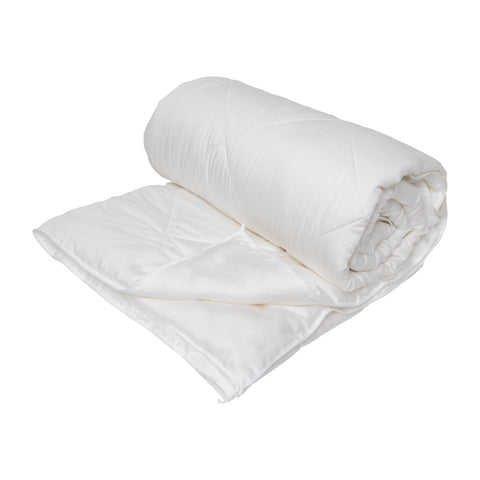
Shop Ethical Bedding's breathable Organic Eucalyptus and Bamboo Duvet
To answer the common questions ‘Is Tencel breathable?’ and ‘Is cotton breathable?’, yes.
Tencel and cotton (percale in particular) are both highly rated for their breathability and moisture-wicking properties, which helps to keep you cool and dry at night – even when the temperature’s at its hottest.
Durability
When looked after and cared for correctly, Tencel material is highly durable and resistant to quick wear and tear. Similarly, cotton is also a tough and long-lasting fabric – although you’ll need to pick out long-staple cotton for extended durability.
Aesthetics
Where cotton provides a crisp finish to your bed, Tencel smoothly drapes over your mattress to give your bedroom a premium feel. And over time, Tencel is much better at retaining colour, with cotton eventually fading.
Maintenance
While Tencel sheets are durable, it’s important to look after them correctly to ensure a long lifespan. This includes avoiding high temperatures and exposure to direct heat. Meanwhile, cotton bed sheets can be machine dried, and you’ll often find they get softer with each wash.
Wrinkle resistance
Intriguingly, Tencel is completely wrinkle-resistant, which means you’ll not need to spend time ironing your bed sheets. This is because, while Tencel is a product of natural fibres, it’s also a semi-synthetic material designed to resist wrinkling. In contrast, cotton wrinkles very easily.
Shrinkage
Tencel is known to shrink a little on the first wash, but don’t be put off; it’s typically resistant to shrinking after that. On the other hand, you’ll often find that cotton shrinks more than Tencel, with the amount it reduces by depending on the type of cotton and quality.
Skin sensitivity
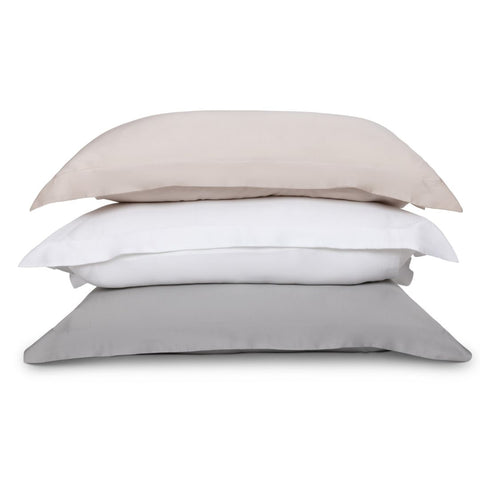
Shop Ethical Bedding's Hypoallergenic Eucalyptus Silk Pillowcases
Both Tencel and cotton are suitable for sensitive skin and naturally hypoallergenic. As a semi-synthetic material designed for comfort, Tencel is particularly effective as a non-irritating fabric.
|
Tencel |
Cotton |
|
|
Choice |
All Tencel fabric is naturally luxurious and premium-feeling. |
There are a variety of cotton types to choose from, ranging from silky to non-silky. |
|
Washing |
Wash on a gentle cycle and cold spin. |
Can wash on a warm spin. |
|
Price |
More expensive, but high-quality means long-lasting value. |
Typically cheaper than Tencel, and price depends on quality. |
|
Softness |
Soft and silky, for a luxurious night's sleep. |
Gets softer with each wash. |
|
Warmth |
Excellent temperature regulation for a comfortable night's sleep. |
Naturally cosy with a fluffy feel. |
|
Environment |
Requires 95% less water and 30% less energy to manufacture than cotton. |
Not as environmentally-friendly as Tencel, requiring more water and energy to manufacture. |
|
Hygiene |
Hypoallergenic, breathable, and moisture-wicking for a hygienic night's sleep. Wash every 1-2 weeks. |
Hypoallergenic, breathable, and moisture-wicking for a hygienic night's sleep. Wash weekly. |
|
Breathability |
Excellent breathability for a cool and dry night's sleep, even during summer. |
Typically warmer than Tencel, but still excellent breathability for a cool and dry night's sleep. |
|
Durability |
When cared for properly, Tencel is durable and strongly resistant to wear and tear. |
Tough and long-lasting, with long-stable fibres especially effective. |
|
Aesthetics |
Luxuriously drapes over your bedding. |
Provides a crisp finish to your bed. |
|
Maintenance |
Avoid high temperatures and exposure to heat. |
Low-maintenance, and can be machine dried. |
|
Wrinkles |
Semi-synthetic design means Tencel is wrinkle-resistant. |
Cotton wrinkles easily. |
|
Shrinkage |
Will shrink a little after the first wash, but won't typically shrink any further. |
Shrinks more than Tencel, with the shrinkage dependent on the type and quality of cotton. |
|
Sensitivity |
Non-irritable and naturally hypoallergenic. |
Non-irritable and naturally hypoallergenic. |
Should you buy Tencel or cotton?
The decision as to whether you should buy Tencel or cotton is entirely yours. Both are quality fabrics that provide a comfortable night’s sleep, and boast their own range of benefits.
Helpfully, however, we’ve pulled together a few important reasons why you might want to choose Tencel over cotton, and vice versa.
Who should buy Tencel bedding?

Hot sleepers: Because Tencel is naturally temperature-regulating, you’ll be sure to keep cool even in the hottest summers. Breathability means every night’s sleep is comfortable and dry.
Sensitive skin: If you’ve sensitive skin, Tencel bedding could be right for you. Moisture-wicking properties ensure a hygienic night’s sleep, helping to prevent skin conditions like eczema, while the hypoallergenic fibres keep your allergies at bay.
Eco-conscious: Eucalyptus Tencel bedding uses far less water and energy in manufacturing than cotton. If you’re eco-conscious and want to do you bit for the planet, why not consider the type of bed sheets you buy and opt for a sustainable solution.
Who should buy cotton bedding?
Affordable: Cotton is typically more affordable than Tencel, especially if you compare it with more common varieties like American Upland.
Cosy: Cotton is naturally fluffy, which makes it perfect for cosy sleepers who like to get tucked in and keep warm.
Low maintenance: Cotton can effortlessly sustain high temperatures, meaning you can spin you sheets on a hot wash and throw them in the tumble dryer/hang them in the sun.
To summarise: the difference between Tencel and cotton is largely in the quality. While Egyptian cotton is among the most sought-after fabrics in the world, alternative cotton varieties generally place second to Tencel in the quality department.
Find out for yourself by exploring our luxurious range of Tencel bedding, or learn even more from our sleep experts over on the Ethical Bedding blog.


